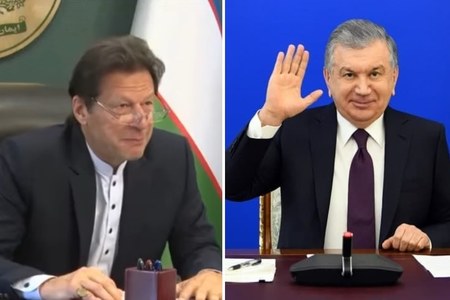ISLAMABAD: After a delay of 30 months, the first-ever shipment under the Convention on the International Transport of Goods for traffic-in-transit of goods across the border has left for Uzbekistan from Pakistan via the Torkham border customs station.
Pakistan Customs processed the first-ever TIR consignment from Karachi at Torkham destined for Tashkent via Afghanistan. The consignment consisted of herbal medicines and after completion of all Customs formalities at Torkham it crossed into Afghanistan.
Islamabad signed the Convention on International Transport of Goods Under Cover of TIR Carnets (TIR Convention) in August 2015, which is a multilateral treaty that entails no payment of Customs duties and taxes. Pakistan ratified the convention in January 2016.
The Federal Board of Revenue (FBR) notified rules for the implementation of TIR in October 2017 with a delay of 27 months since the ratification of the convention.
As many as 77 countries including Afghanistan have acceded to the TIR convention so far. As a result of this, the Afghan government will not check Pakistani trucks carrying goods to Central Asian countries. It will also ensure uninterrupted flows of trucks across the Pak-Afghan border.
Commerce Adviser Razak Dawood said that this is a moment of great pride for Pakistan and lauded the efforts and role of the Pakistan Customs in this regard, an official announcement. “This successful TIR operation will usher a new era of direct land-route trade with the CARs,” he remarked.
Mr Dawood said the use of TIR system will streamline border procedure cutting time and money for trade and transport operators.
The commerce adviser said that connectivity with trading partners is vital for viable trade relations. He said that the structure and efficiency connectivity networks enable access to markets and should be considered a facet of the trade competitiveness.
Mr Dawood said the long-term vision of the government for trade and economic relations with Afghanistan, Uzbekistan and Central Asian Republics (CARs) is that we want to make Pakistan a hub for trade, transit and transhipment.
He said that the trade must be based on secure, open, consistent, reliable and legal movement of goods at the Afghan border along with enhanced connectivity with Afghanistan, Uzbekistan and CARs.
This will ensure that Pakistan leverages its geo-economic location in the region to enhance its international trade. He said that the current engagement with Afghanistan and Uzbekistan, are steps towards implementation of this vision.
The Customs Convention on the International Transport of Goods under Cover of TIR Carnets (called the “TIR Convention”) came into force in March 1978 and it replaced the original Transport Internationaux Routier (TIR) of 1959.
The TIR Convention 1975 is one of the most successful international transport conventions and is so far the only universal Customs transit system in existence. To date, it has 77 Contracting Parties, including the European Union China, Afghanistan, Iran, Turkey and all CARs. It covers the whole of Europe and reaches out to North Africa and the Near and Middle East. More than 33,000 operators are authorised to use the TIR system and around 1.5 million TIR transports are carried out per year.
The objective of the TIR Convention is to facilitate international transit through simplified Customs transit procedures and an international guarantee system. Customs procedure takes place at origin and destination rather than at each border crossing, using a single guarantee.
Published in Dawn, May 1st, 2021














































